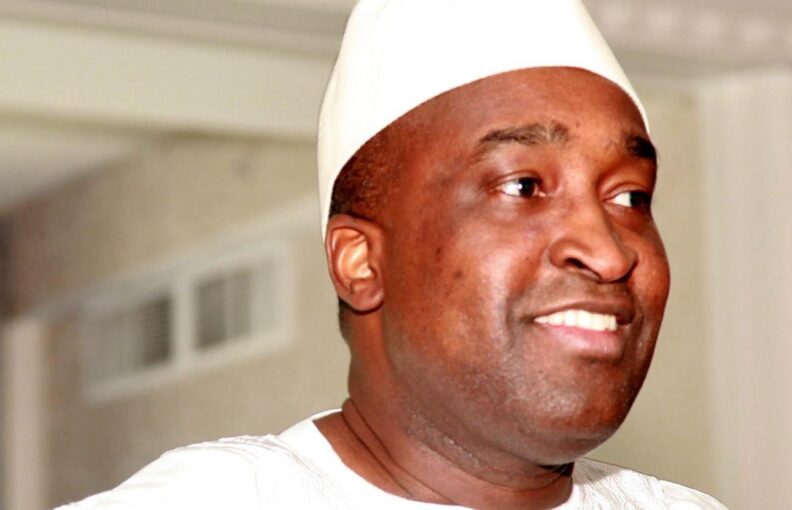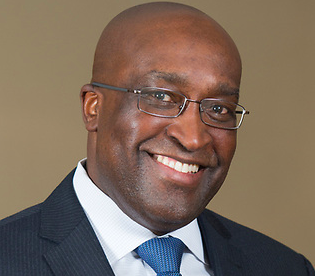Ambassador Omar Arouna weighs in on the power grab in Niger

In this column written exclusively for The African magazine, Ambassador Omar Arouna, a veteran diplomat, president on the Advisory Board of the New York Center for Foreign Policy Affairs (NYCFPA), provides a useful insight about the colonial past of countries in the region, saying emphatically that the United States must not withdraw from Niger.
As I have been saying to my friends at the U.S. State Department for some time, the United States shouldn’t outsource its foreign policy in the Sahel region to France. Rightly or wrongly, the population in that region perceives France as part of the problem. They are yearning for true democracy, but when they perceive their elected leaders as being controlled by the former colonial power, it creates the situation such as the one in Niger, and previously in Burkina Faso and Mali. I am convinced the U.S. has a role to play in the region, and we can still be a good and trusted partner to the people of Mali, Niger, Burkina Faso, and Guinea. To that effect, we must listen to the people and step away from the old ways of conducting foreign policy. U.S. engagement in Niger is vital. The current political situation is no reason for us to stop our engagement with Niger’s armed forces to combat terrorism in the region.
The coup in Niger is not surprising when viewed in the regional context. Mali, Burkina Faso, and now Niger, have a few things in common: they are former French colonies, extremely poor, and, except for Guinea, are fighting terrorism in the frontline. The coup in Niger follows the same pattern as the ones in Burkina Faso and Mali. The rhetoric of the Nigerien junta is the same as the Malian and the Burkina juntas: “We have been fighting terrorists but with little to show for it; and every time we are on the verge of destroying units of jihadist fighters, we are told by the French or our civilian government to stand down.”
Another one of their grievances is the impression that the government is not in tune with the desire of the people, but rather in line with the colonial power’s needs. The putsch in Niger is a response to those grievances.
The international community should be interested in finding out what is fueling these power grabs and listening to the people, instead of having a dogmatic view of what is going on. My view is that the Russian narrative is only a symptom of a deeper resentment about the rampant poverty, and the realization that the West, which extracts the minerals, has not delivered on helping the people effectively alleviate the poverty. The region is rich in minerals that are exploited by western companies without any effective and immediate benefit to the people in the region. Such a situation is bound to have consequences.
The younger generation of leaders have a multipolar view of the world and are just using Russia as a leverage to assert themselves. The United States, the West in general has a role to play. They must review their approach and not just revert to sanctions and suspend their engagement after this type of situation, especially when such a coup is embraced by the population.
Yes, the military coup in Niger interrupted a democratic process. But, is the democratic process fostering economic development? I am certain that Niger needs to pursue the democratic process; but the United States and other development partners of Niger must invest more into building the economy, investing in social projects, and poverty-alleviation program.
It would be a mistake for the United States to withdraw from Niger. That will leave the space to Russia.
Also: What the coup in Niger means for the United States
Also: The colonial factor in the coup d’état in Niger

Mr. Arouna is the former Ambassador of the Republic of Benin to the United States and Mexico, and the country’s former representative to the World Bank, the International Monetary Fund, and the Organization of American States. Ambassador Arouna is currently the Managing Partner of U.S.-Africa Cybersecurity Group, a cybersecurity management consultancy, and the CEO of Global Specialty LLC, a global business development consulting firm driven by providing advisory and operational services to organizations and their business communities seeking market entry and establishing business operations in Africa. He serves as President on the Advisory Board of the New York Center for Foreign Policy Affairs (NYCFPA), an American think tank devoted to research and analysis of all aspects of American foreign policy and its impact around the world.
Ambassador Arouna is a Commander of the National Order of Benin and has an MBA in Cybersecurity from The George Washington University. He is bilingual in French and English, and fluently speaks several languages of his country of origin.

